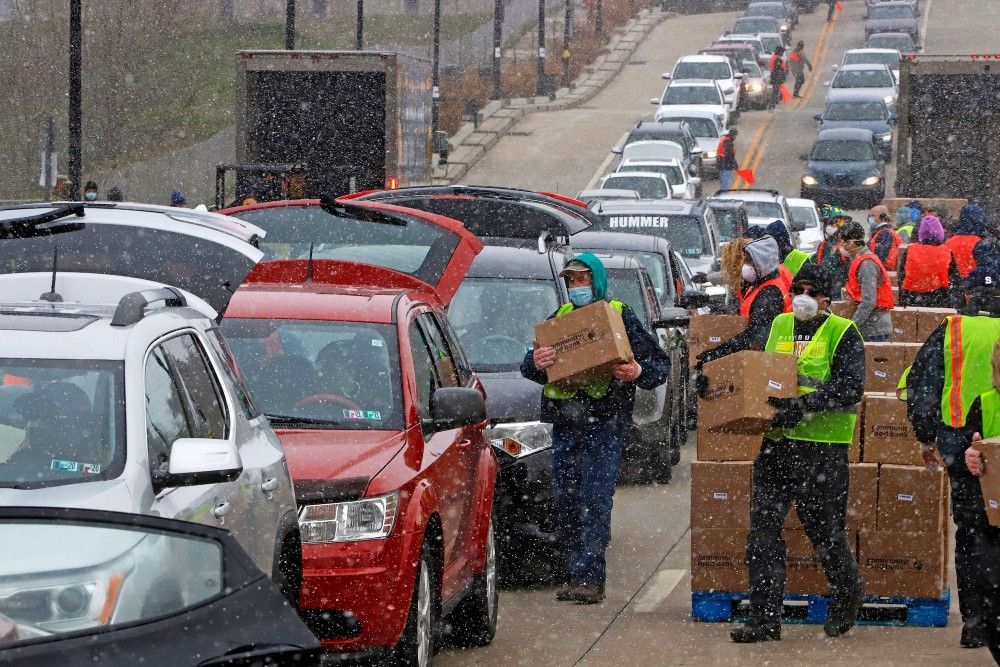
Food Banks Are Overwhelmed and It's Congress' Fault
Food banks across the country are struggling to meet ever-increasing demand as the millions of workers made jobless by the economic impact of try to feed their families. Local news channels broadcast seemingly never-ending lines of cars filled with hungry families, many of whom are sent home when the food bank runs out of food.
This is what I saw. Blistering heat. Folks in line since 7pm the night before. To get food. Hundreds of volunteers busting it to serve, so families could go home (probably to pass some out to their neighbors too) & get the nourishment they need.
This is the Crisis. pic.twitter.com/CL8Be0wNwI
— Robert R. Fike (@robfike) April 9, 2020
“It was a rough one today,” San Antonio Food Bank president and CEO Eric Cooper told the San Antonio Express-News when the non-profit had the largest single-day distribution in its 40-year history. “We have never executed on as large of a demand as we are now.”
He added, “Our staff and our volunteers, I don’t know if we can keep up the pace that the demand is requiring. We’ve got to debrief and figure things out, but we just can’t feed this many people at one time without probably the National] Guard or somebody helping us.”
But food banks are not meant to be a stop-gap measure. They are intended to supplement food stamp programs like WIC and . As Talk Poverty points out, during the 2008 financial crisis, passed an $800 billion stimulus package that included expansion of SNAP benefits. And as the Center for Budget and Policy Priorities points out in a 2015 analysis of congressional action during the recession, increases in (SNAP benefits) returned $1.74 per dollar invested. In fact, the parts of the stimulus that gave the most bang for the buck were direct income support to low-income and unemployed people. And Moody’s Analytics and the Congressional Budget Office agree that increasing food stamps is one of the fastest ways to stimulate the economy in an economic downturn.
But in its response to COVID-19, Congress did not expand food stamp benefits. The stimulus package did increase funding for SNAP but only so the program could pay for those who newly qualify under current guidelines, not to expand benefits or eligibility. In fact, the Trump administration is currently fighting in court to kick more people off of food stamps in the midst of the pandemic while an unprecedented number of Americans lose their jobs and income — a truly heartless measure.



